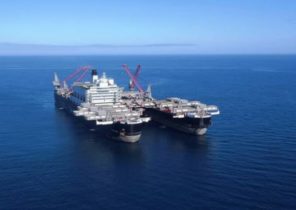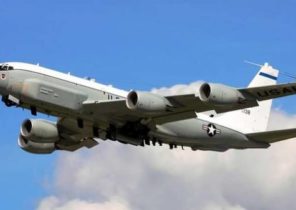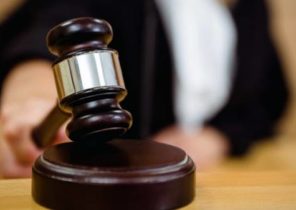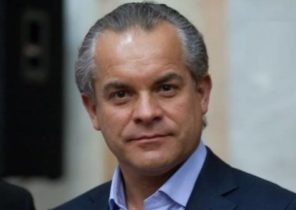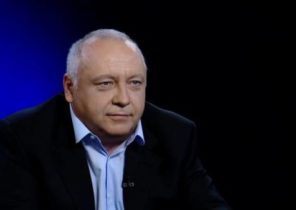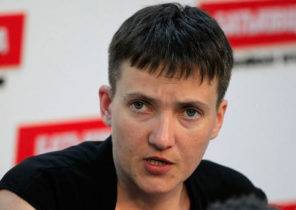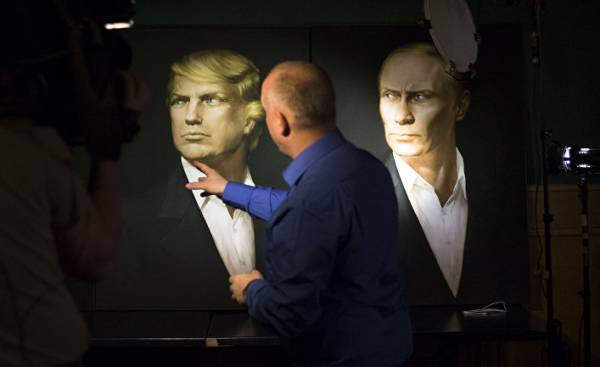
Washington — June 18, 2001, I attended the first meeting of Vladimir Putin with American journalists. We sat at a large round table in one of the halls of the Kremlin library. Only recently Putin took office of the President, and we still didn’t know what to expect from a former KGB agent, recently took part in the summit with George Bush, who “looked into his soul” and called the Russian leader “credible”. After waiting several hours, we finally saw Mr. Putin, who went to the gym a little after 8 PM, sat down at the table and began to answer questions. The meeting ended just around midnight.
When the turn reached me, I asked a question about a brutal war against separatists in Chechnya. Its long and wordy answer is worth to revisit it now, many years later: he combined criticism of the media (according to him, we could not properly tell the story of those violent crimes that are committed by the separatists), anti-Islamic sentiments (“What do you suggest we do? Talk to them about biblical values?”) and the emphasis on the fact that he had to launch an attack in Chechnya to protect the rest of Russia. Later that evening, he offered to conduct a joint Russian-American operations against serious threats, namely Islamic terrorists, and declared his Patriotic plan to rebuild Russia after the economic shocks of the previous decade.
Sound familiar? Then, in 2001, the slogan of Mr. Putin could well become the slogan of “making Russia great again”.
It’s been four weeks of administration of Donald trump, and Mr. Putin, who has been in power for 17 years and he is not going to go away any time soon, is a major theme in American politics. Mr. Putin without a shirt always becomes the character parodies in the program Saturday Night Live in which he often appears together with the President of the United States. The intervention of his hackers marred the presidential election in the United States. And the news that Russia has dirt on Mr. trump has never left the headlines of leading Newspapers.
Last week, this “history of Russia” turned into a hasty resignation of the presidential adviser on national security issues Michael Flynn (Michael T. Flynn), although Mr. Flynn was blamed not so much that he had discussed the issue of lifting the sanctions with the Russian Ambassador, but in the fact that he didn’t report it to the Vice President. A day later, media reports surfaced that aides to Mr. trump had maintained contacts with Russian intelligence for a whole year before the presidential elections in the United States.
Previously, Mr. trump has made it clear that he not only admires the courageous image of the Russian President, but finds it much more worthy of the title “leader” than President Barack Obama. In February in his interview to the Fox network, Mr. trump was to criticize the repressive management style of Mr. Putin. In this regard, it is not surprising that such misplaced sympathy of Mr. trump’s attitude to the Russian leader spawned a million conspiracy theories.
However, we don’t need to speculate about possible conspiracies and to expose what is happening to thorough psychoanalysis. After the inauguration we were able to gather a number of indisputable facts: rhetoric and actions of Mr. trump as President is very similar to the rhetoric and the actions of Mr. Putin in the first years of his presidency, when he was engaged in consolidation of power. Because I spent those years in Moscow as a foreign correspondent, I can confidently say that the similarity is so obvious that it simply cannot be ignored.
Of course, in personal terms, the leaders of the United States and Russia are very different from each other. Mr. trump impulsive, and Mr. Putin is very restrained, sudden mood swings and public rants in stark contrast to the cold calculation and the ability to remember newsletters in detail. However, they are strangely similar political views and approaches to the management of their (completely different) countries can be as important a factor as those Russia-related scandals, which now revolves around Mr. trump. We should not assume he’s some agent of Russia, to worry about the rate at which he leads us.
A criticism of the media and insulting remarks. Attacks on other organs of power and influence, whether of a Federal judge or Corporation refusing to obey him. Warning — some of them can cause a real panic — that the country is in danger and that we should go to war with the Islamic extremists because they threaten our way of life. By these techniques, Mr. Putin used in the first years of his presidency. Such tactics and ideology, based on the clash of civilizations, is Mr. trump now.
In the beginning of his presidency, Mr. Putin was very similar to Mr. trump: he boldly challenged the traditions and the established order, which provided him a strong leader among the people, tired of the mistakes of Boris Yeltsin and the economic problems of the late 1990-ies. Mr. Putin seized the first independent national TV station, has turned the State Duma into a pocket Parliament, and began the hunt for impudent oligarchs. He said things that politicians usually don’t say: he promised to “soak” the Chechen opposition “in the toilet” and threatened to castrate a French reporter who asked the question that he did not like.
Despite a lot of signs, observers of the Kremlin in the early 2000-ies took a long time to see Mr. Putin, the future autocrat. Meanwhile, many believed that after a period of turmoil that arose in connection with the collapse of the Soviet Union, Russia is finally moving steadily toward stability. There where some rightly saw the conservative former KGB agent, determined to restore a strong state, the other stubbornly saw the future reformer on the Western model.
Looking back, we can say that the best guide in trying to predict his actions were his statements. Mr. Putin did exactly what he was talking about. Last year I thought about it a lot, while the Americans tried to explain the sudden rise of Mr. trump and see whether he thinks what he says and does he plan to fulfill his promises.
Like the slogan of Mr. trump’s “Make America great again” today, Putin’s version of restoring Russia’s greatness was not under any strong ideological overtones, however, its Patriotic, nationalist impulse in its entirety reflects the plan of Mr. Putin, who wanted a weakened and demoralized the country began better to treat yourself. Mr. Putin believes the collapse of the USSR in 1991 “the greatest geopolitical catastrophe” of the 20th century, and even if we Americans didn’t always understand what he seeks, he never deviated from his true purpose, which is to consolidate power in the Kremlin.
Perhaps this is what fascinates Mr. trump, Mr. Putin most. In an interview with Playboy magazine, which he gave in March 1990, Mr. trump, who at the time had hoped to build a luxury hotel in Moscow, shared his impressions about the last days of the Soviet Union under Mikhail Gorbachev. “Russia is out of control, and the authorities know this — then said future American President. — This is the problem with Gorbachev. He has a firm enough hand”.
The hand of Mr. Putin, obviously, was much more solid. Despite the many obvious problems, confusion, corruption, lies, and economic failures, he has been in power for 17 years, managing to transform from an unknown KGB officer President of Russia. And it can also be a part of what Mr. trump — one accidentally fell into the power of the President, whose position in the White house is still very uncertain — see in Mr. Putin and other authoritarian rulers. He sees them as strong leaders who are talking about power more than freedom, and often measure their success by their ability to stay in power.
I recently asked Bob Corker (Bob Corker), Chairman of the Senate Committee on foreign relations, why, in his opinion, Mr. trump is in such obvious sympathy for Mr. Putin. “I believe that there is an admiration for a strong leader,” he said. Another theory is that Mr. trump considers himself a kind of superhero who will establish a strong relationship with Mr. Putin, “to prove that he is able to do things that were not under force to other presidents”.
And these are the words of Republican who hopes to do business with trump administration.
America is not burdened by a history of tyranny and totalitarianism that has plagued Russia. We have 229 years of success of constitutional democracy that will survive the age of trump. And although the trappings and powers accompanying the “Imperial presidency”, which is now carried out by Mr. trump has continued to grow since, as the historian Arthur Schlesinger, Jr., (Arthur M. Schlesinger Jr.) proposed this term in the era of Nixon, we also have a strong countervailing institutions such as a free and independent press and the Federal courts, which already show a powerful resistance to those techniques and tactics that Mr. Putin is effectively used in Russia.
However, now it is quite difficult to stay calm. When I moved to Moscow in the first year of his presidency, Mr. Putin since the collapse of the Soviet Union was only 10 years old. Many Russians are still hoping that their country will become similar to those of the Western States, which they recently wasn’t even old enough to drive. In spite of the popularity of the struggle of Mr. Putin with what he called the chaotic freedoms of the 1990-ies, in Russia, I met many people who hoped that someday their country will take its rightful place among “normal”, stable democracies.
Who would have thought that 17 years later the question of the future of democracy will not rise in Russia, and in America?
